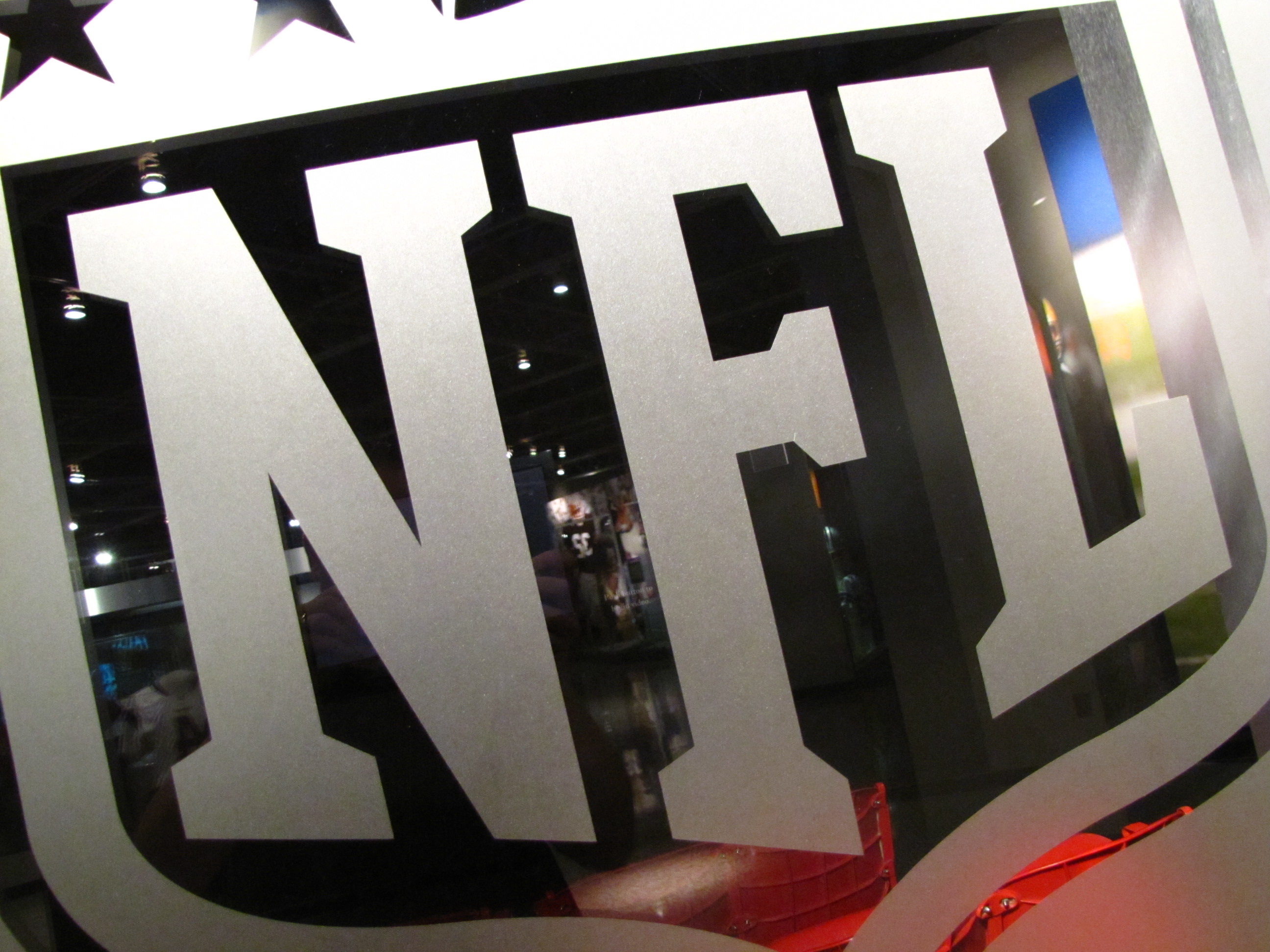The Hull Shebang: NCAA should relax ban on seasonal fantasy leagues for student-athletes

The NCAA bans student-athletes from participating in the frustration and fun of fantasy football leagues, though regular students have been able to bond with friends and peers over weekly games. (Creative Commons photo by Matt McGee via Flickr)
By Michael Hull
Nov. 1, 2016 11:40 p.m.
I beat my roommate this weekend in fantasy football.
He was pretty mad. Every week he plays the team in our league that scores the most points.
Eight games deep in the season, he’s put up nearly 110 points a game but has 73.5 more points scored against him than any other team. No matter how well his team performs during any given week, every opponent he faces sets a personal high score.
Sure, seasonal fantasy leagues make for stressful and largely unproductive Sundays, but they build friendships and are a great way to make sure the chores get done around the house. Sorry, roommate.
While some small amount of motivation may be financially induced too, it’s not gambling, nor is it gambling under the NCAA’s own definition of sports wagering. Daily fantasy sports absolutely are, sure.
That’s a buy-in, roll-of-the-dice, once-off game where, according to John Oliver, most of the winnings go to one percent of users who make a living off of their self-made equations and spreadsheets.
But anybody can excel at seasonal leagues. I nearly lost to a team whose manager left in a player that was on a bye week. People can choose to invest any amount of time and energy in them, and as long as they have a basic understanding of the NFL, its positions and the fantasy points system, the result will show for itself.
Or it won’t – sometimes people who don’t have any knowledge of the sport run the table. But the point is, when you commit for a season with friends, it’s for fun, not for sport.
So when the NCAA opposes all forms of sports wagering, legal and illegal, because it “has the potential to undermine the integrity of sports contests and jeopardizes the welfare of student-athletes and the intercollegiate athletics community,” there’s just one question – does seasonal fantasy football do any of that?
No, not really. And yet, UCLA still makes its athletes, coaches and staff sign no-fantasy pledges.
Most student-athletes, just like the rest of us nonathletic regular people, don’t have any realistic and regular connection with players in the NFL. The football players probably keep in touch with running back Paul Perkins and linebackers Anthony Barr and Eric Kendricks, but their main concerns are with their own games every weekend.
I wouldn’t know, but I’d be willing to bet the farm they’re not texting Perkins, Barr and Kendricks asking them for a little more production so they can beat their own roommates.
You could make the case that as athletes, they may have an insider’s knowledge not available to nonathletes that could give them a leg up – if they know a player is injured, they would be able to avoid starting them while regular users would not.
But then again, as is clearly detailed in the NFL’s injury report policy, all information about injured players must be disseminated to the public, media, opposing team and league office. It’s strictly enforced, according to the NFL, and is of “paramount importance in maintaining the integrity of the game.”
The fantasy websites even give that information to users daily, who get to then incorporate that into their own plans.
I sometimes wonder if professional football athletes on the same team have their own fantasy leagues, in which they have themselves on the team. If that were the case, then perhaps Aaron Rodgers would consider avoiding Jordy Nelson if the two were playing each other in the week, but then again, winning the NFL contest is how they make their living.
If I had to guess, they would probably put the millions of dollars they get in contracts and advertising above bragging rights. Discount double-check.
Next up, jeopardizing the welfare of student-athletes. Seasonal fantasy leagues can serve as a distraction from schooling and potentially from practicing, but no more than just watching football or playing video games do, and those aren’t illegal in the NCAA yet. The college social life is the biggest culprit when it comes to jeopardizing the welfare of students and student-athletes alike.
And as for the collegiate athletics community? Team leagues would be good – yet another outlet for bonding, a way to connect program alumni with current players, a place for the benchwarmers to show up the starting line; the list goes on.
Treating seasonal leagues as a form of sports wagering is archaic, and for an organization that is based around identifying talent, recruiting and managing teams, the NCAA, of all organizations, should appreciate and recognize its parallels with fantasy football.
The rule is bad, though I suppose it’s not nearly as bad as being 2-6.
Again, sorry roommate.


